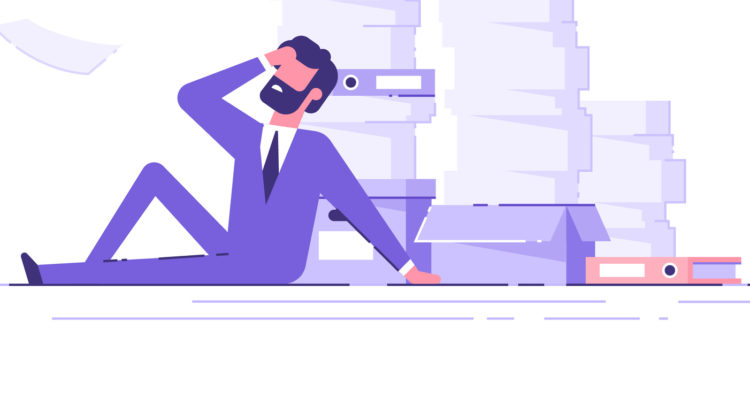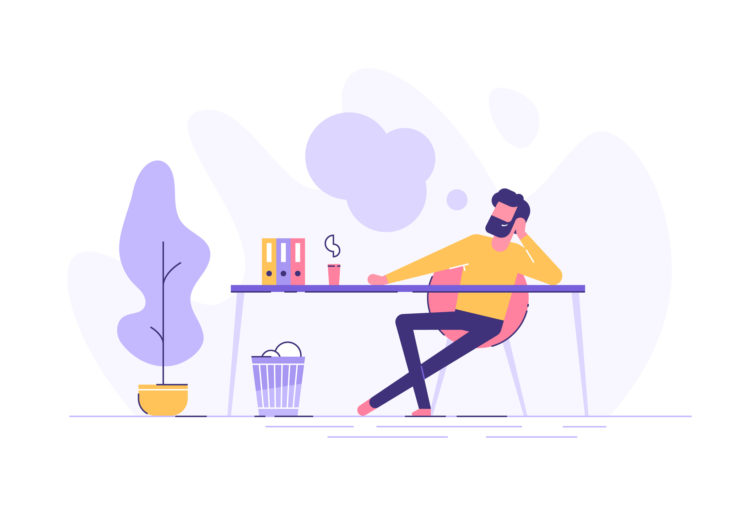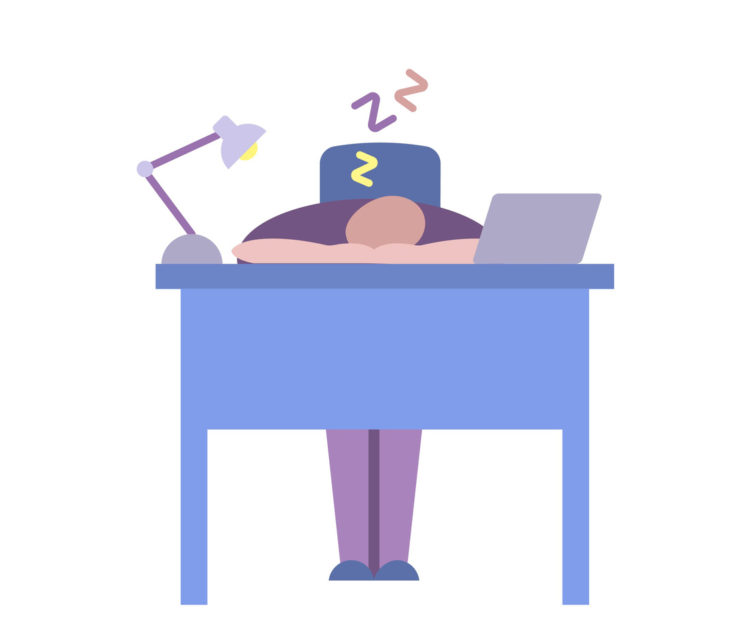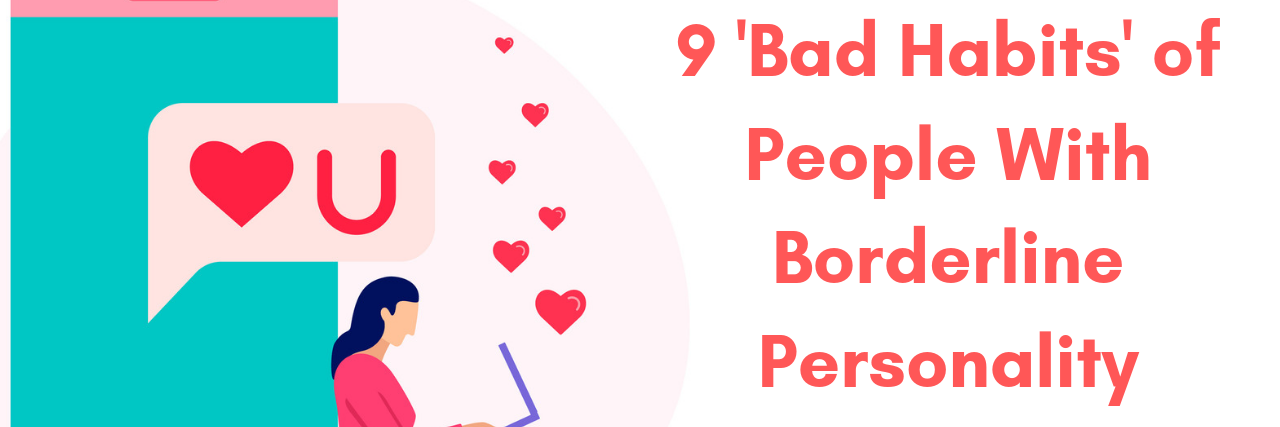Whether it’s biting your nails, being too lazy to do your laundry for weeks on end or marathon-watching “Gossip Girl” for the fifth time (no judgment, we swear!), we all have “bad” habits we sometimes wish we didn’t. But when you live with a borderline personality disorder (BPD), sometimes your “bad” habits are directly related to your mental illness.
From impulsive shopping to constantly texting your friends asking, “Are we OK?,” “bad” BPD habits often show up when you’re just trying to manage the roller coaster of emotions that so often comes with BPD. Sound familiar? You’re not alone.
We wanted to know what “bad habits” people develop when they live with BPD — and more importantly, how they cope with them — so we turned to our Mighty BPD community to share their experiences. Read what they said below.
We also want to remind you that having a “bad” habit doesn’t make you a bad person. “Bad habits” often help us cope with the inevitable emotional turmoil we experience in our lives. On your journey with BPD, you might just find better ways to cope — and it’s important to let yourself be open to them! In the meantime, wherever you are, you aren’t alone.
Here are some “bad habits” people have because of BPD:
1. Impulse Spending

One of the nine classic symptoms of BPD is engaging in risky or impulsive behavior. For some, this can look like driving too fast. For others, it can look like spending a lot of money on things they don’t really need.
“My bad habit is my spending. On anything and everything I desire. I have/had no control.” — Candice P.
“I impulse buy a lot of clothes when my self-worth is low — I try and make myself feel better by changing my aesthetic and buying new outfits.” — Alex S.
Coping Tips From Our Community:
- Sell Your Purchases
“I found a hobby that allows me to spend a lot less… I became a ‘picker’! Being a person who hunts yard sales, thrift shop, private sales and picks out treasures for cheap and sell them for a lot more! I do good with it. I am making money while meeting my need to spend it. I spend two dollars on an item and sell it for $200. It meets the need for the thrill of the spending, while only spending little.” — Candice P.
- Make Wish Lists
“I’ve been overcoming [my overspending] by making wish lists that I check back on in a month. This means I’m no longer impulse buying these things and if I don’t still want it in a month, I don’t buy it. It’s really helped me save my money and stop myself [from] spending all of my money in the first week I get paid.” — Alex S.
- Ask a Loved One for Budgeting Help
“I have a trusted person with my finances who gives me an agreed-upon allowance and that’s my ‘play money.’ He uses my card to ensure bills are paid first and money goes into savings. And, of course, my kids’ needs are being met. It’s frustrating to feel like a child with money, but I have him as a safety net to not allow it to get out of control.” — Rudi R.
2. Seeking Validation

When we’re struggling, it’s only natural to turn to people we love for support and validation. But sometimes, if we lean on our loved ones too often and don’t have some self-soothing strategies up our sleeves, we can put undue pressure on important relationships. There’s nothing wrong with wanting to be reminded you’re loved, but if attention-seeking behavior is negatively impacting your friendships, try out some of the coping tips from our community below.
“I need attention to make me feel worth it.” — Paula S.
“Needing validation from others.” — Melissa R.
Coping Tips From Our Community:
- Look Back at Meaningful Texts, Letters or Photos
“I screenshot meaningful texts from my favorite people and read them over and over to help me through the dark times when I feel like texting them directly will be ‘too much.’” — Paula S.
- Engage in a Spiritual Practice
“I’m really trying to stay centered and meditate on the truth that God resides within me so the attention from others is not essential to my well-being.” — Melissa R.
3. Isolating

It can be really tempting to isolate yourself when you’re struggling. For some this might look like “ghosting” on social media or texting. For others, it might mean locking yourself in your room with Netflix and junk food. Most of the time though, isolating can make things worse. If this is your typical coping strategy, try to stretch yourself and reach out — even if it’s just a simple text to a friend letting them know you’re feeling a little down.
“Staying in bed all day. Isolating myself.” — Maddie T.
“I isolate myself because I feel no one actually wants me in their life.” — Natasha Q.
Coping Tips From Our Community:
- Try to Visit or Hang Out With Friends Anyway
“When I’m feeling like this, I try to make myself go visit my friends who are out of town so I can get out of the house for a few days.” — Maddie T.
- Practice Self-Care
“I try to just listen to music or read to turn my isolation periods into more of a ‘recharge’ session and then I can start socializing again and feel happy about it.” — Natasha Q.
4. Skin Picking

Skin picking is often associated with anxiety and obsessive-compulsive disorder (OCD). It’s important to note skin picking is not the same as self-harm. According to the TLC Foundation, body-focused repetitive behaviors (BFRBs) like skin picking (excoriation disorder) are rarely engaged in to intentionally produce pain or obtain relief from a negative emotional state — as in most cases of self-harm. If you struggle with skin picking in difficult moments, you’re not alone. For more resources on BFRBs, head here.
“I pick at the skin on my fingers. Sometimes until there’s a noticeable hole and I’m bleeding.” — Becca M.
Coping Tips From Our Community:
- Find a Creative Outlet
“Usually I use artwork to help handle it. I draw and I paint. So far this year I’ve painted probably close to 100 canvases of all different sizes.” — Becca M.
5. Being Indecisive

If BPD makes you feel like you can’t make decisions effectively, you’re in good company. Maybe you’re worried you’ll make the “wrong” decision or are afraid of making a decision someone you look up to wouldn’t approve of. Whatever your underlying struggle for indecision is, we want you to know you’re not alone.
“I can’t make a decision to save my life. It’s very annoying. I wish I could just make up my mind and be confident about what I pick.” — Kara R.
“I get indecisive or impulsive or both. I can’t decide on important things but will act impulsively doing meaningless things.” — Rhianna W.
Coping Tips From Our Community:
- Write or Cry It Out
“I’ve found drawing how I’m feeling and also writing it all down helps make the thoughts stand still rather than jumping about so much. That and just crying it all out!” — Emma J.
6. Disconnecting From Reality

When your feelings get intense do you try to disconnect from the world around you? While there’s nothing wrong with distracting yourself from time to time when you’re struggling, if you’re habitually using things like TV or casual sex to avoid dealing with your emotions, it may be time to take a step back and re-engage. Feelings can be difficult, but moving through our emotional experiences is an important part of healing and being human.
“I like to disconnect from reality. I watch too much TV. It’s comforting but I stay up far too late and then lose out on too much sleep. If I don’t get enough sleep, I get worse.” — Melinda G.
Coping Tips From Our Community:
- Try a No-Technology Day or Weekend
“I have to force myself to break the cycle. I recently tried a no-TV weekend. I was forced to sit with my thoughts while I did other things. It really helped to ground me again.” — Melinda G.
7. Ruminating on Negative Thoughts

When you’re feeling low, it’s easy for your brain to jump to the worst possible thoughts that match your mood. While this is something that happens to many folks, you might not realize you can actually fight (and win!) against the negative thoughts. It takes practice, but if you struggle with ruminating, you might want to try the cognitive behavioral therapy (CBT) skill of reframing. Learn more about reframing your thoughts here.
“Wallowing in my misery. It’s almost like I want everything to be terrifying.” — Amelia E.
“Being negative about myself. I’m always like, ‘excuse my hair’ ‘excuse my legs’ ‘excuse this.’ Must really annoy people and I’m starting to annoy myself. No one’s perfect, so why am I asking people to excuse my appearance or the way I am?” — Becky S.
“Thinking someone can’t be friends with someone else other than me because then it means they don’t like me or value me enough.” — Ally C.
Coping Tips From Our Community:
- Text a Loved One
“I text my person — my rock. I tell them how ‘crazy’ I feel and how I’m struggling and they help me get out of it. I really don’t feel like this is the kind of illness you can get through on your own.” — Amelia E.
- Drink a Soothing Hot Beverage
“I will fix myself hot tea with a lot of raw honey and cream… I really like lavender and matcha teas a whole lot… I will fix a sleepy tea at night to try to soothe my thoughts before going to bed.” — Sheri O.
- Remind Yourself You Are Not “Less Than” Others
“I just catch myself and say everyone can exist equally and I am not lesser than.” — Ally C.
8. Rearranging the House

It’s no secret that cleaning, redecorating and rearranging our spaces can be mood-boosters (take it from Marie Kondo!). Sometimes these strategies can help us, but other times they may be exacerbating a deeper issue — especially if you notice your stress levels going up, not down. If you find yourself cleaning compulsively or redecorating so often that it overwhelms you, it might be time to reach out for support. Talk to a loved one or mental health professional if it’s affecting your life negatively.
“I rearrange every damn room in my house. I’m not happy until I got so tired I can’t do anything but sleep.” — Jenn M.
Coping Tips From Our Community:
- Try Out a New Kind of Therapy
“I’m doing schema therapy which I’ve only just started, but it will help me understand how to deal with things and also understand why I am the way I am and where my personality traits come from and how to manage them.” — Holly N.
9. Oversleeping

Oversleeping is another way we can distance ourselves from our thoughts and feelings. Though getting enough sleep is a good and important self-care practice, if you find that you’re using sleep to avoid engaging with the world, reach out for support. Check out the coping tips below for some other ideas when you turn to oversleeping in tough moments.
“Nail picking, constant sleeping and overeating.” — Lyndsay P.
Coping Tips From Our Community:
- Spend Time Outdoors
“Spending time outdoors and taking cool showers helps bring me back down a bit. Also having a nice homemade meal reminds me I can face whatever comes my way and just take it one day at a time.” — Lyndsay P.
If you have a “bad habit” because of BPD, you’re not alone. To connect with people who really “get it,” you can post a Thought or Question on The Mighty with the hashtag #BorderlinePersonalityDisorder. We’re here for you on your health and wellness journey.
For more on BPD from our community, check out the following pieces:
- 18 ‘Impulsive’ Hairstyles People With BPD Regret
- When You Don’t Fit the ‘Classic’ Definition of Borderline Personality Disorder
- 25 People Share the Worst Symptoms of BPD
How do you cope with “bad” BPD habits? Share your go-to coping strategy below.
Getty Images photos via luckyvector, UnitoneVector and lankogal

